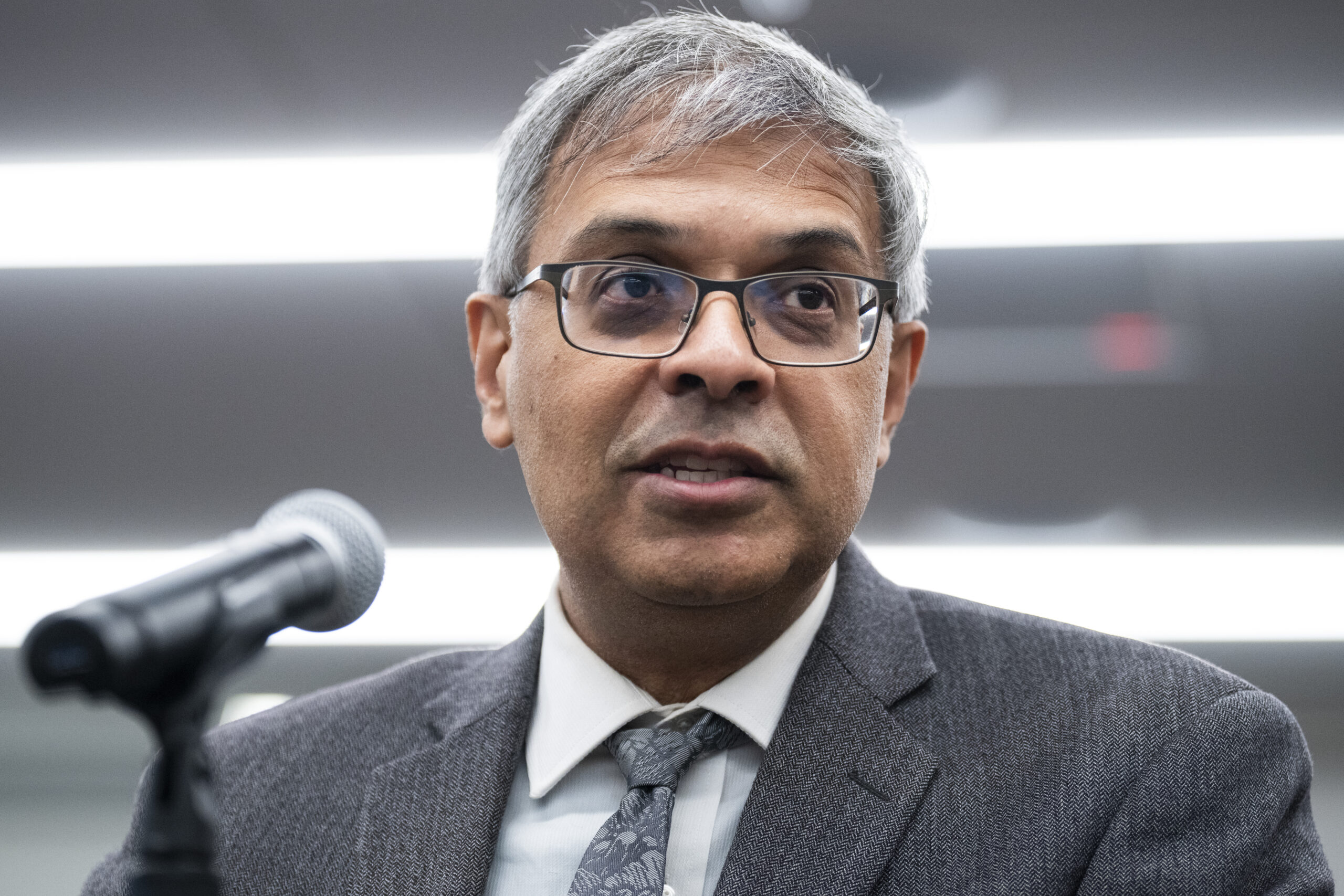
President-elect Donald J. Trump announced Tuesday that Dr. Jay Bhattacharya, a Stanford physician and economist known for his controversial stance on pandemic policies, will serve as the new director of the National Institutes of Health (NIH).
Dr. Bhattacharya gained prominence as a co-author of the Great Barrington Declaration, a 2020 manifesto opposing widespread Covid-19 lockdowns in favor of “focused protection” for vulnerable populations.
“Together, Jay and RFK Jr. will restore the NIH to a Gold Standard of Medical Research as they examine the underlying causes of, and solutions to, America’s biggest health challenges, including our Crisis of Chronic Illness and Disease,” Trump announced on social media, referring to Robert F. Kennedy Jr., his choice to lead the Department of Health and Human Services.
A Controversial Pick for a Critical Role
If confirmed by the Senate, Dr. Bhattacharya will oversee the NIH’s $48 billion budget and its 27 specialized institutes, making him a central figure in shaping the nation’s biomedical research priorities. However, his nomination has already raised eyebrows due to his divisive views on public health policies during the pandemic.
Critics point to his lack of active medical practice and controversial policy suggestions, such as advocating for natural immunity through controlled exposure among low-risk populations.
Dr. Bhattacharya’s rise to prominence was fueled by his sharp criticism of lockdowns, mask mandates, and other measures adopted to curb the virus.
His Great Barrington Declaration argued that Covid-19 policies were causing irreparable harm to mental health, education, and the economy, sparking a firestorm of backlash from the public health establishment.
Pandemic Policies Under the Microscope
During Trump’s first term, Dr. Bhattacharya shared his views with key administration figures, including then-Health Secretary Alex Azar. His proposals were swiftly condemned as “fringe” by mainstream epidemiologists, who warned that his approach could lead to millions of preventable deaths.
Despite the criticism, his ideas have seen renewed attention as experts reassess the long-term impacts of lockdowns and school closures. Former NIH director Dr. Francis Collins, who once dismissed the Great Barrington Declaration as “fringe,” recently acknowledged that pandemic policymakers may have been too narrowly focused on public health goals at the expense of economic and social considerations.
Polarizing Reactions
Dr. Bhattacharya remains a divisive figure in public health. Supporters argue that his criticisms of pandemic policies deserve reconsideration in light of the collateral damage caused by lockdowns. Critics, however, accuse him of promoting “scientifically unsupported” approaches. His predictions, such as an early claim that U.S. Covid deaths would not exceed 40,000, have drawn intense scrutiny. The pandemic ultimately claimed over 1.2 million lives in the United States.
Dr. Jonathan Howard, an NYU neurologist and outspoken critic, has gone as far as labeling Dr. Bhattacharya’s pandemic assessments as dangerously flawed, describing them in his book We Want Them Infected. Dr. Bhattacharya has dismissed such critiques as baseless, calling his detractors “unhinged.”
A New Direction for the NIH?
Trump’s health-related appointments, including Kennedy at HHS, signal a dramatic shift in U.S. public health leadership. Both nominees represent a challenge to the status quo, suggesting an overhaul of longstanding policies and structures. Dr. Bhattacharya has already called for curbing the influence of career civil servants in federal agencies, a move that aligns with Trump’s broader push to reshape the federal bureaucracy.
As the Senate gears up for confirmation hearings, the battle lines are drawn over whether Dr. Bhattacharya’s appointment represents necessary reform or a dangerous gamble with the nation’s public health infrastructure. His leadership will undoubtedly shape the NIH’s role in tackling critical health challenges in the years to come.